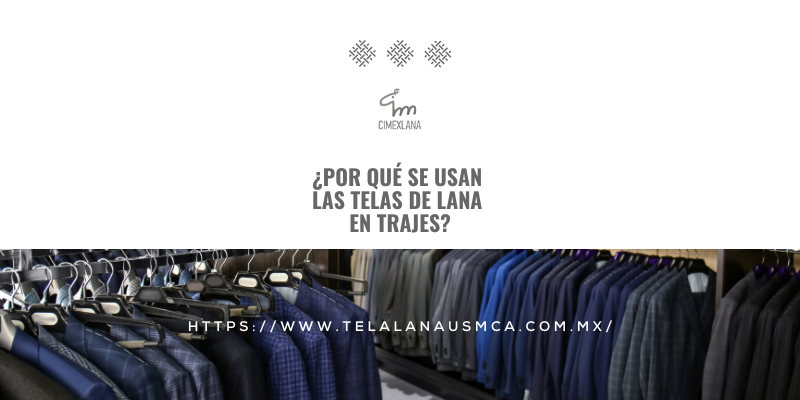
Why are wool fabrics used in suits?
Wool has been an essential material in suit making for centuries. From the elegant suits of European nobles to modern designs worn in the professional field, woolen fabric It's a classic and reliable choice. But what makes wool so special? In this article, you'll discover why this fiber is ideal for suits, exploring its benefits, the types of wool available, and how it adapts to different climates.
Advantages of wool in suit making
Choosing wool for a suit isn't just a matter of tradition; its unique properties make it an exceptional choice. Here are some of its main advantages:
1. Natural warmth
Wool is known for its ability to retain warmth. Its natural structure traps air, acting as a thermal insulator. This makes it an ideal choice for the colder months, especially in regions with harsh winters.
2. Durability
Wool is durable and has elastic fibers that return to their original position after being stretched. A wool suit can withstand years of proper use without losing its shape, making it a long-term investment.
3. Wrinkle resistance
Unlike other materials, wool has a natural resistance to wrinkles. Thanks to the elasticity of its fibers, wool suits tend to stay impeccable even after hours of wear.
4. Breathability
Although it's known for keeping you warm, wool also allows air to circulate, preventing moisture buildup. This ensures comfort for long hours, even in intense work environments.
5. Style and elegance
The texture and drape of wool give suits a sophisticated finish that's difficult to achieve with other materials. In addition to providing a professional appearance, wool suits have a touch of luxury.
Types of wool used in suits
Not all wool is created equal, and there are several varieties to suit different needs and preferences. Here are the most popular ones:
1. Merino Wool
Made from Merino sheep, this wool is soft, lightweight, and high-quality. It's ideal for formal wear and warmer climates due to its fineness and comfort.
2. Lana Shetland
Originally from the Shetland Islands in Scotland, this wool is more robust and thick. It's perfect for winter suits, as it offers greater thermal insulation.
3. Lana Worsted
This process transforms wool fibers into a finer, more uniform weave, creating a soft and durable fabric. Worsted wool is common in high-quality suits and represents the essence of classic tailoring.
4. Lana Cashmere
Cashmere wool, obtained from goats, is renowned for its luxury and softness. Although it is less durable than other types, it is used in exclusive suits for special occasions.
Wool in different climates
One of the most common myths is that wool suits are only suitable for winter, but that's far from the truth. Wool adapts easily to different climates thanks to its versatile properties.
Warm climates
For warmer climates, lightweight wools like Merino or Worsted are ideal. Their breathability keeps you cool, even in the summer months. They're also refined options for formal events in high-temperature locations.
Cold climates
In colder climates, thick wools like Shetland or wool-cashmere blends offer the necessary thermal insulation to keep you warm without sacrificing style.
Temperate climates
If you live in a region with mild seasonal changes, an all-terrain wool suit like a worsted can help you be prepared for any eventuality.
The choice that never goes out of style
Wool suits not only stand out for their sophisticated appearance, but also for their practical benefits. From warmth and durability to elegance and versatility, wool is a choice that combines practicality and style.
If you're looking to invest in a suit that combines quality with functionality, wool suits are undoubtedly the best option. The next time you think about updating your formal wardrobe, consider wool as the fabric that will make the difference in your attire and comfort.

